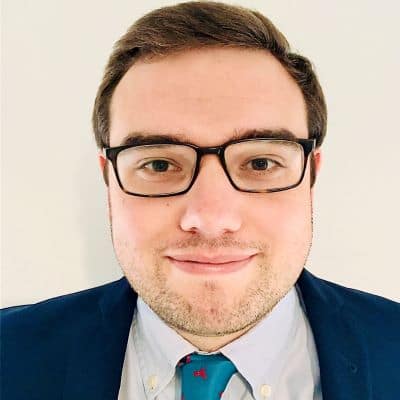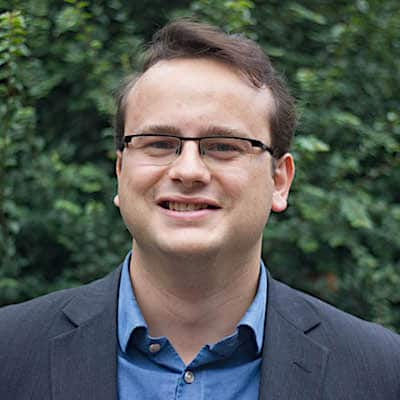Customer Logins
Obtain the data you need to make the most informed decisions by accessing our extensive portfolio of information, analytics, and expertise. Sign in to the product or service center of your choice.
Customer Logins
BLOG
Mar 01, 2018
The ruling coalition in Ethiopia
Ethiopian Prime Minister Hailemariam Desalegn, chairperson of the Southern Ethiopian People's Democratic Movement (SEPDM), resigned on 15 February.
- The ruling EPRDF coalition is likely to agree on a consensus candidate during its congress scheduled for March, probably the head of the Oromo People's Democratic Organisation (OPDO) secretariat, Abiy Ahmed.
- Ahmed's appointment would ensure the Tigrayan People's Liberation Front (TPLF) remains the EPRDF's most influential member, while the government will approve new legislation to facilitate foreign participation in energy and infrastructure development.
- Disloyalty in the military is likely to be successfully prevented, while the more carefully crafted state of emergency is unlikely to worsen cycles of civil unrest in the Amhara and Oromia regions.
Ethiopian Prime Minister Hailemariam Desalegn's resignation resulted in the Council of Ministers imposing a state of emergency on 16 February for six months, subject to parliamentary approval within 15 days. The ruling Ethiopian People's Revolutionary Democratic Front (EPRDF) coalition, of which the SEPDM and three other ethno-linguistic parties are members, accepted Desalegn's resignation and are likely to agree on an ethnic-Oromo replacement. Desalegn will remain prime minister until a successor is appointed. He stated that resigning was necessary in order for the government to resolve grievances motivating civil unrest in the Amhara and Oromia regions. The grievances stem from land grabs by businesses affiliated with EPRFD member the Tigrayan People's Liberation Front (TPLF), uneven redistribution of economic benefits under the flagship Growth and Transformation Plan (GTP), and limited Oromo and Amhara representation in senior central government posts, which are dominated by the TPLF. In an effort to address these, the EPRDF's executive committee held evaluative meetings and issued a statement on 29 December 2017. The leadership said that it would undertake "corrective measures" but did not offer specific proposals.
Oromo opposition
Grassroots Oromo opposition is growing. EPRDF member the Oromo People's Democratic Organisation's (OPDO) 250-member congress in December 2017 elected 14 reformists to the 36-member central committee allied to OPDO chairperson and Oromia regional president Lemma Megersa. Congress represents the grassroots of Oromia's electorate, among whom Megersa is gaining influence, having strongly condemned the killing of Oromo protesters since demonstrations began in Oromia region from April 2014.
The OPDO's threat to the EPRDF's stability was also indicated on 29 November. OPDO member and parliamentary speaker Abadula Gemeda spoke at the Amhara National Democratic Movement (ANDM) party's 37th anniversary, held at the Oromo Cultural Centre. The ANDM's symbolic decision to hold the ceremony in Oromia came after Gemeda temporarily resigned as speaker in October over limited progress on political reforms. Both the ANDM and the OPDO subsequently boycotted parliament on 21 December. Short of formal co-operation, the boycotts indicated that both sides could eventually obtain a parliamentary majority and co-ordinate to initiate a constitutional review that dilutes the TPLF's power.
TPLF's pre-emptive strategy
The TPLF party's leadership changed in December 2017, resulting in the appointment of Minister of Communications Debretsion Gebremichael as TPLF chairperson. Crucially, allies of late Prime Minister Meles Zenawi who supported the status quo were sidelined and held responsible for hindering progress in meeting the GTP's objectives. Gebremichael probably supports the appointment of an Oromo prime minister; a consensus Oromo successor would likely prevent elite-level co-operation between OPDO and ANDM members. Allies of Gebremichael perceive that distributing the GTP's economic benefits to the regions will reduce grassroots pressure on the EPRDF's member parties, and thereby improve the coalition's overall stability.
Oromia's regional government has increasingly called for greater local ownership, especially in the energy and mining sectors, which TPLF-affiliated companies dominate and the TPFL is likely to prove sensitive to these concerns. On 25 January, TPFL board members of the state-directed conglomerate, the Endowment Fund for the Rehabilitation of Tigray (EFFORT), suspended chief executive officer Azeb Mesfin, following her suspension from the party's executive committee. The National Bank of Ethiopia (NBE), the country's central bank, was also empowered to prevent these companies benefiting from preferential access to foreign currency and loan provisions. Addressing persistent liquidity shortages affecting Ethiopian banks supporting commercial projects in regions outside Tigray appeal to Oromo elites.
Outlook and implications
IHS Markit assesses that Minister for Science and Technology Abiy Ahmed is the most likely successor as prime minister. The OPDO's preference for Ahmed was indicated through his appointment as party chairperson on 19 February. Former minister of information Getachew Reda, who was newly elected to the TPLF's executive committee in December 2017, also signalled during media interviews on 5 February and 15 February the TPLF elite's potential acceptance of him or a close Oromo candidate. Ahmed is popular with Oromo youth and works closely with the TPLF's elite on various parliamentary working committees. Ahmed also founded the Information Network Security Agency (INSA), an Ethiopian government intelligence agency responsible for collecting and monitoring signals intelligence. While Foreign Minister Workneh Gebeyehu is a potential successor, he lacks grassroots support and his appointment would probably prove divisive. A probable cabinet reshuffle following the new prime minister's appointment is unlikely to alter significantly the organisation of the Council of Ministers.
Separately, the government is likely to begin cautiously to deal with disunity within the military's senior ranks. Shortly before his resignation, Desalegn authorised the promotion of three non-Tigrayan lieutenant-generals to general, which is the highest rank within the Ethiopian National Defence Forces (ENDF). The promotions indicated a departure from the TPLF's historical preference for promoting ethnic-Tigrayan officers to more senior ranks. The ENDF's chief of staff, General Mohamed Nur Yunus (a Tigrayan), supports the marginalising of non-Tigrayans. Following the TPLF's leadership changes, the party will probably now seek Yunus's removal. If influential former defence minister Syeye Abraha defects to the government from his opposition Medrek party, then this would indicate Yunus's likely orderly departure without threatening the military's cohesiveness or loyalty to the new prime minister.
Appointing an Oromo prime minister would be unlikely to placate either the Oromo or Amhara grassroots opposition. Unlike the previous state of emergency, the 16 February restrictions were less wide-ranging and the government continues to release previously detained individuals, including the politician Andualem Arage, who was released on 14 February after facing a life sentence for his alleged affiliation to the outlawed Ginbot 7 group. This indicates that the ongoing cycles of violent protests in Oromia and Amhara regions are unlikely to worsen, particularly threatening road vehicles and cargo. Protest and strike hotspots include Gondar and Bahir Dar, Amhara region. Mass arrests or security forces' crackdowns on protests during the tate of emergency would likely strain the new prime minister's ability to reach out to demonstrators.
{"items" : [
{"name":"share","enabled":true,"desc":"<strong>Share</strong>","mobdesc":"Share","options":[ {"name":"facebook","url":"https://www.facebook.com/sharer.php?u=http%3a%2f%2fstage.www.spglobal.com%2fmarketintelligence%2fen%2fmi%2fresearch-analysis%2fthe-ruling-coalition-in-ethiopia.html","enabled":true},{"name":"twitter","url":"https://twitter.com/intent/tweet?url=http%3a%2f%2fstage.www.spglobal.com%2fmarketintelligence%2fen%2fmi%2fresearch-analysis%2fthe-ruling-coalition-in-ethiopia.html&text=The+ruling+coalition+in+Ethiopia+%7c+S%26P+Global+","enabled":true},{"name":"linkedin","url":"https://www.linkedin.com/sharing/share-offsite/?url=http%3a%2f%2fstage.www.spglobal.com%2fmarketintelligence%2fen%2fmi%2fresearch-analysis%2fthe-ruling-coalition-in-ethiopia.html","enabled":true},{"name":"email","url":"?subject=The ruling coalition in Ethiopia | S&P Global &body=http%3a%2f%2fstage.www.spglobal.com%2fmarketintelligence%2fen%2fmi%2fresearch-analysis%2fthe-ruling-coalition-in-ethiopia.html","enabled":true},{"name":"whatsapp","url":"https://api.whatsapp.com/send?text=The+ruling+coalition+in+Ethiopia+%7c+S%26P+Global+ http%3a%2f%2fstage.www.spglobal.com%2fmarketintelligence%2fen%2fmi%2fresearch-analysis%2fthe-ruling-coalition-in-ethiopia.html","enabled":true}]}, {"name":"rtt","enabled":true,"mobdesc":"Top"}
]}






